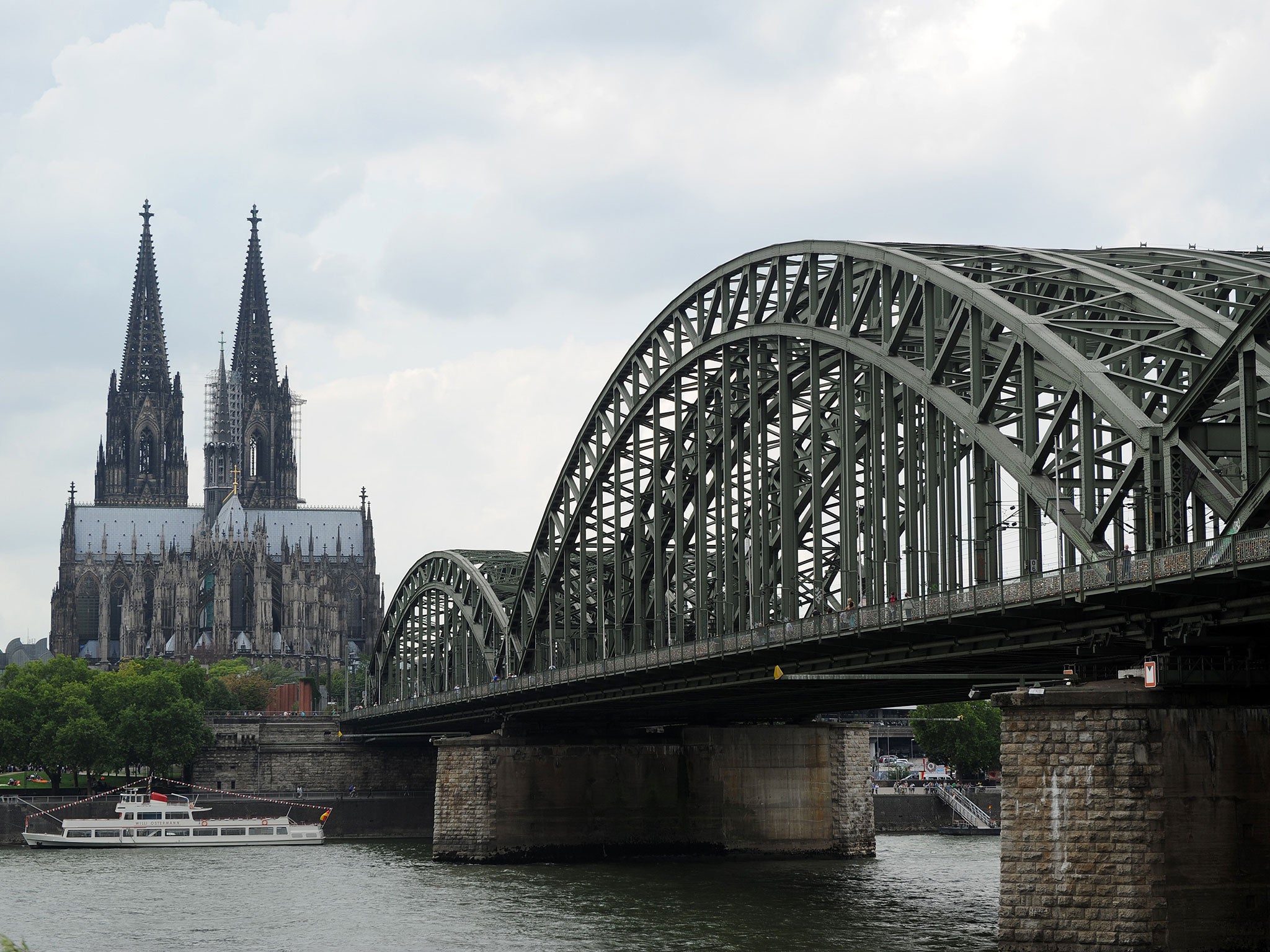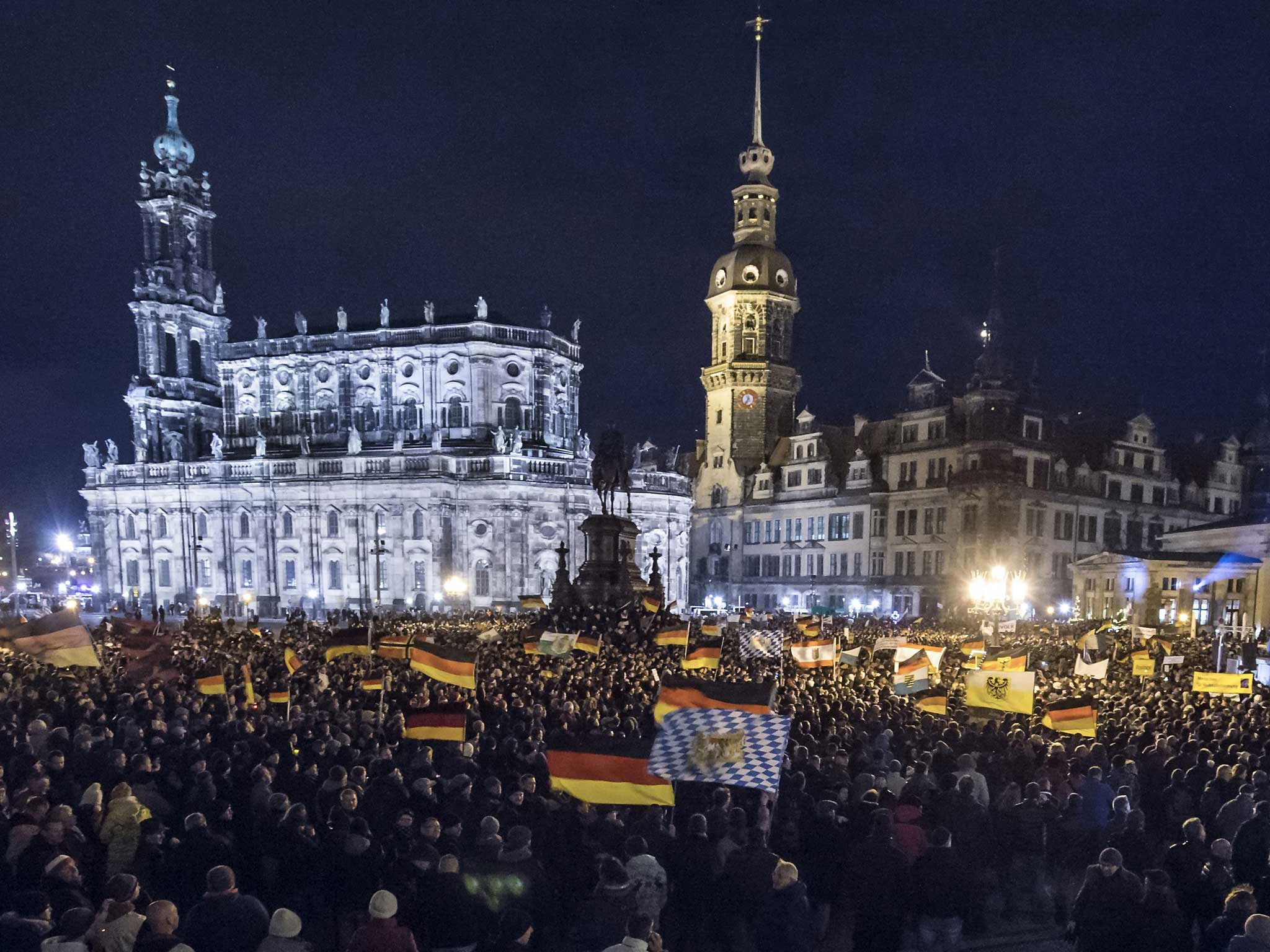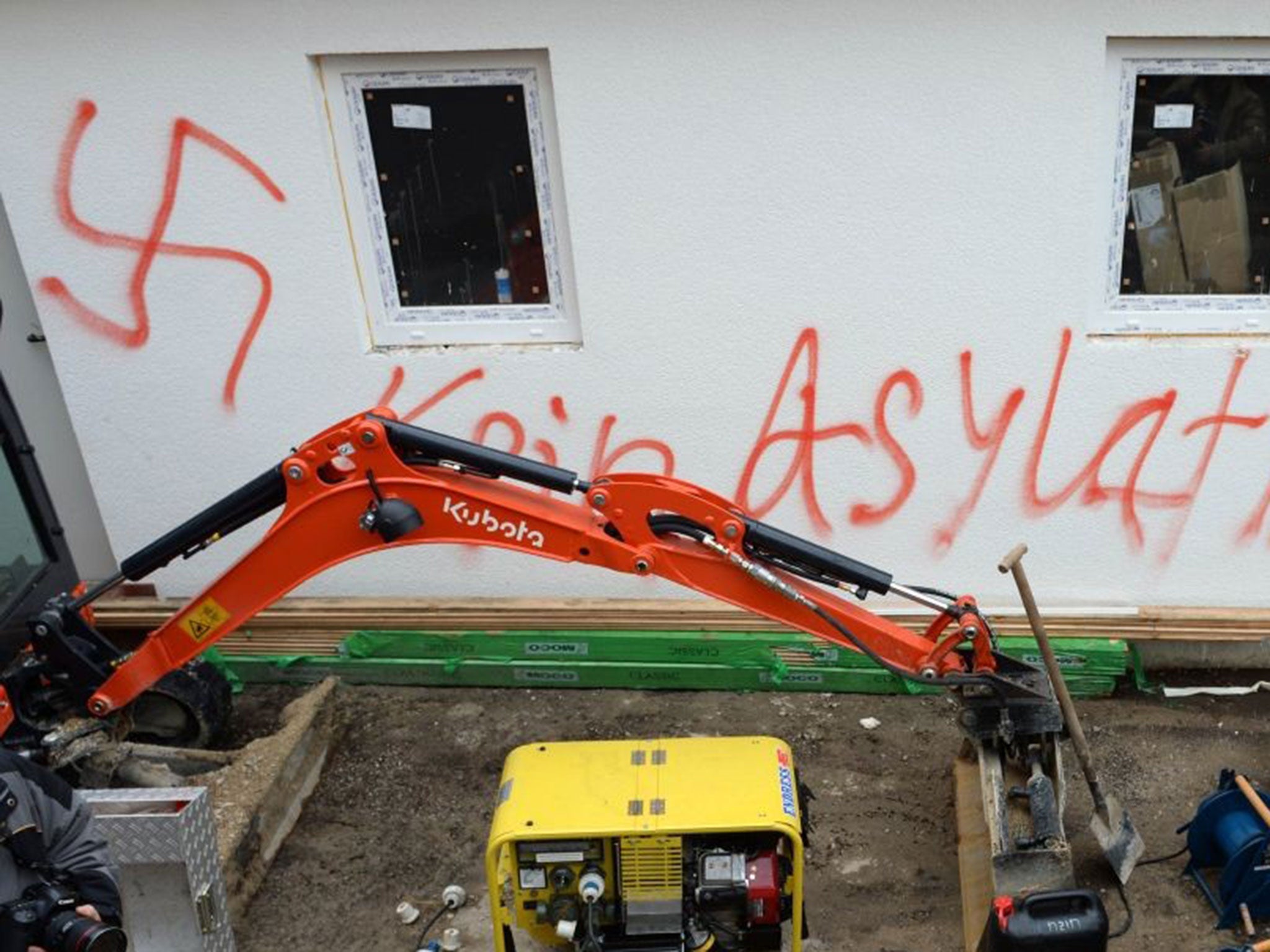Germany anti-Islam protests: Cologne Cathedral to switch off lights in protest against Pegida
As support grows for the controversial movement, so does opposition

Your support helps us to tell the story
From reproductive rights to climate change to Big Tech, The Independent is on the ground when the story is developing. Whether it's investigating the financials of Elon Musk's pro-Trump PAC or producing our latest documentary, 'The A Word', which shines a light on the American women fighting for reproductive rights, we know how important it is to parse out the facts from the messaging.
At such a critical moment in US history, we need reporters on the ground. Your donation allows us to keep sending journalists to speak to both sides of the story.
The Independent is trusted by Americans across the entire political spectrum. And unlike many other quality news outlets, we choose not to lock Americans out of our reporting and analysis with paywalls. We believe quality journalism should be available to everyone, paid for by those who can afford it.
Your support makes all the difference.One of Germany’s most famous landmarks will go dark on Monday night as thousands people are expected to flood the streets in anti-Islam demonstrations.
As the Pegida movement against the so-called “Islamification of the West” has grown, so has opposition to it and Cologne Cathedral’s silent protest is set to be one of the most symbolic so far.
It will turn its lights off for almost three hours during the rally, following the example of the Semperoper concert hall in Dresden, where the protests have been centred.
In December, more than 17,000 people marched on the city with the “Patriotic Europeans against the Islamification of the West”, filling the city’s historic square singing Christmas carols and waving German flags.

Its leaders have been dismissed as “Nazis in pinstripes” and the group’s rise has coincided with arson attacks on refugee hostels and the daubing of swastikas on city walls, but the controversy has not dissuaded supporters.
The German Chancellor, Angela Merkel, used her new year’s address to deliver her most outspoken attack to date on Pegida, accusing its leaders of “prejudice, coldness and hatred”.
She accused them of hijacking and abusing political slogans, including “wir sind das Volk” (“we are the people”), that helped to topple the Berlin Wall 25 years ago.
The sudden popularity of Pegida has shocked Germany’s main parties and provoked heated political debate as the country struggles to cope with a record 2014 influx of more than 200,000 asylum seekers. The influx is set to continue well into the new year.
In November, new hostel accommodation destined for use by asylum seekers was left damaged in a suspected arson attack near Nuremberg. Swastikas and anti-immigration graffiti were daubed on the walls.

Monday’s rally is the latest in a string of weekly protests around Germany against perceived rising immigration and “extremism” that started in October.
Thousands of people have joined counter demonstrations that saw 15,000 anti-fascist protesters take to the streets in Munich and chanting “no Nazis here” in Cologne.
Pegida insists it is opposing only against extremism and not against immigrants or Islam itself, but the demonstrations have received support from far-right and Neo-Nazi groups, prompting concerns that xenophobic sentiment might be rising.
It is calling for the immediate deportation of asylum seekers with criminal convictions but claims to support the admission of refugees fleeing war or political and religious persecution – provided all other EU member states “shoulder the burden” equally.
But its main focus is the preservation of “Judeo-Christian Western culture” against what supporters claim is the rise of “radicalism” and “parallel societies with Sharia police”.
German politicians have been accused of pandering to the group by proposing a radical overhaul of the country’s asylum system, including swift deportations of anyone refused refugee status.
Bavaria’s ruling Christian Social Union, which is part of Mrs Merkel’s federal coalition, has proposed a new fast-track asylum process, in which “simple” cases would be decided in just six weeks, compared to the current average of eight months.
Immigration has a topic of hot debate in Germany this year following a surge in the numbers of asylum seekers, fuelled by the wars in Syria and Iraq. Germany takes in more asylum seekers than any other EU country and expects 200,000 claims for 2014, up from 127,000 in 2013.
Join our commenting forum
Join thought-provoking conversations, follow other Independent readers and see their replies
Comments